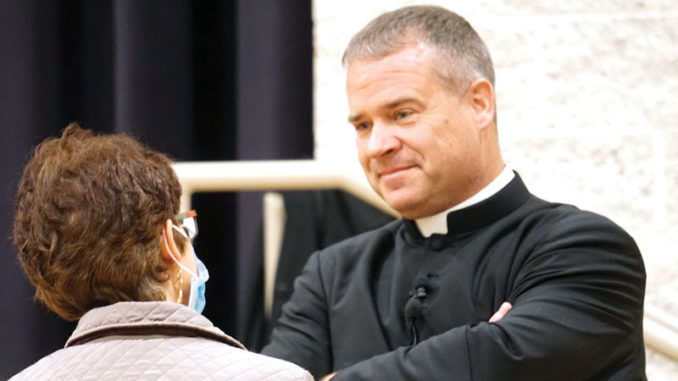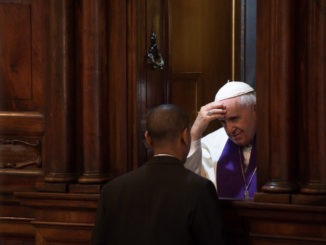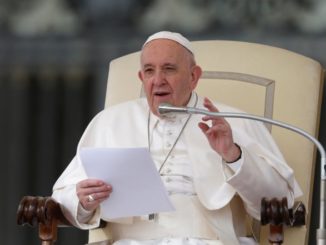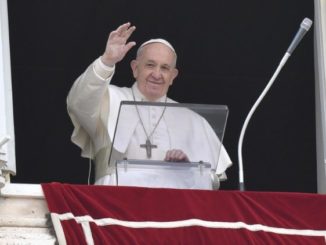
SIMPSONVILLE—Following a year crushed by a pandemic unlike anything many of us have witnessed, one might logically assume that now wouldn’t be the time for a Lenten mission on death.
Father Matthew Kauth disagrees.
“You and I live in an age in which we try to pretend as if death isn’t going to happen to us,” Father Kauth said. The pandemic has heightened our need, not only to cling to life, but also in the process, to look in the mirror and assess where we are with death.
“While it seems like a morbid thing to think about, I suggest that it’s just the opposite,” he said.
Ordained as a Catholic priest in 2000, Father Kauth spoke to approximately 200 people at St. Mary Magdalene recently, explaining that, as Christians, the end of one’s life is the most important part of living.
“If we think this life is somehow more interesting than the next one, then we really haven’t received the Gospel,” Father Kauth said. In Romans 6:23, St. Paul calls death the “wages of sin.”
“It means you and I weren’t made for death,” Father Kauth said, citing again from Romans. “We were made for life (and) the son of God came that you might have life, and have it in abundance. He’s come to destroy death.
“What is that brief candle we call life in comparison to eternity?” he asked.
A priest in the Diocese of Charlotte, Father Kauth served as a parochial vicar, administrator and pastor for six years, then was sent to Rome to complete a doctorate in moral theology before returning to the diocese as a high school chaplain and professor at Belmont Abbey College.
In 2014, he launched a commission to determine the feasibility of establishing a college seminary in the Diocese of Charlotte. Two years later, St. Joseph’s Seminary opened in Mount Holly, located a few miles from Belmont Abbey. He has served as the school’s rector since it opened in 2016.
In his Lenten mission at St. Mary Magdalene, titled “The Four Last Things: Death, Judgement, Hell and Heaven”, Father Kauth shared God’s word on the existence of hell.
“No one likes to talk about hell, except our Lord,” Father Kauth said, noting that hell is mentioned in the Bible far more frequently than Heaven.
“If you get rid of hell, then you also get rid of Heaven.” It’s a consequence of being free to reject one or the other, he said. “You shape your desires, you shape your inclinations over the course of time, in accordance with the truth or away from it.”
In her “Treatise on Purgatory,” Father Kauth noted that St. Catherine of Genoa referred to Purgatory as both the greatest possible pain one can experience and the greatest joy at the same time.
The pain comes from the love one has for God, Father Kauth said.
“The love you hold for Him knows no bounds once you see Him,” he said. “Purgatory is so merciful, meaning if the love of God is in me, what we call the seed of grace; if I’m in the friendship of God when I die, it’s your greatest moment of trust, your last real act.
“You don’t get to Heaven by dying,” Father Kauth said. “You get to Heaven by loving. Eternal life is to love and to see Him.”



